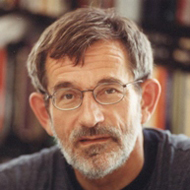Štědroň Miloš
- Year of Birth :
- 1942
Biography
Milos Stedron studied musicology and Czech languague at the Faculty of Arts, J. E. Purkyne University (now Masaryk University) 1959 - 1964 and composition at the Janacek Academy of Performing Arts with Alois Pinos, Miloslav Istvan, Ctirad Kohoutek and Jan Kapr (1965 - 1971). He later continued his training as a composer with postgraduate studies in experimental and electroacoustic music at the Janacek Academy and scholarships in Darmstadt (1966), Vienna, Belgium and the Netherlands (1964), Germany - Munich (stipendium der Stadt München 1988 and 1989). As a university student has had already (in 1963) started to work as an assistant at the Music History Department of the Moravian Museum, and he later led the Small Music Theatre there. In 1972 he left to work at the Musicology Department of the Faculty of Arts at what is today Masaryk University, where in 1988 he gained his "habilitation" as a docent on the basis of research on Janacek that had already gained him his doctoral degree of Candidate of Science. In 1994 he was appointed professor. He has lectured on the theory of composition and other subjects at the Masaryk University and the Janacek Academy of Arts. His musicological interests are focused on 20th-century music and the era of the Renaissance, mannerism and Baroque.
At the beginning of his professional musical career, Stedron's interests were primarily in history and theory of music. The change that shifted the balance to composition came in the mid-seventies. Many years of work with theatre companies, and especially the Theatre on a String (Divadlo na provazku) gave Milos Stedron the chance to develop his particular vision of, and approach to, contemporary music theatre. The dominating feature of Stedron's creative interests and ideas is music of older styles, to which he reacts as arranger and above all as composer by systematically linking up and so transforming the principles of older and contemporary music. He uses the methods of collage, montage and other techniques that lead to "banalisation", alienation and even parody. The focus of Stedron's work is concertante music for ensembles of a generally "chamber" scope and structure, which takes as its starting point (and inspiration) the most personal material in the context of contemporary musical thought. Many of his pieces are inspired by folk music and folk and non-traditional instruments often appear in his instrumentation. He is well-known for his collaboration with famous contemporary music ensembles such as Due Boemi and DAMA DAMA. Stedron's is also linked to the fragments of music by Janacek (the Danube Symphony, the "Wandering of the Soul" Violin Concerto), that he prepared for performance together with Leos Faltus, and with his work on a critical edition of the complete scores of Janacek.
Stedron is the composer of many dozens of scores for stage and film productions and is one of the most sought-after musicians in this field.
He has received a range of awards for his music, including, for example, prices in the Czechoslovak Republic Young Composers' Competition for his pieces Master Machaut in Bohemia and terra, 1st Prize in the Prix musical de Radio Brno, and Prix musique folklorique de Radio Bratislava for The Weeping of Ruzena Danielova from Hruba Vrbka over her Husband, Dead in Auschwitz (a joint work with A. Parsch), or a prize in a competition in Santander for his music for the film Ballad for a Bandit.
© 2012-2025 Musicbase.cz
Webdesign & hosting Nux Ltd.
Information about web | Sitemap | RSS | Statistics | CMS
Contact information
Music information center, o.p.s.
tel: 257 312 422 | e-mail: his@musica.cz

